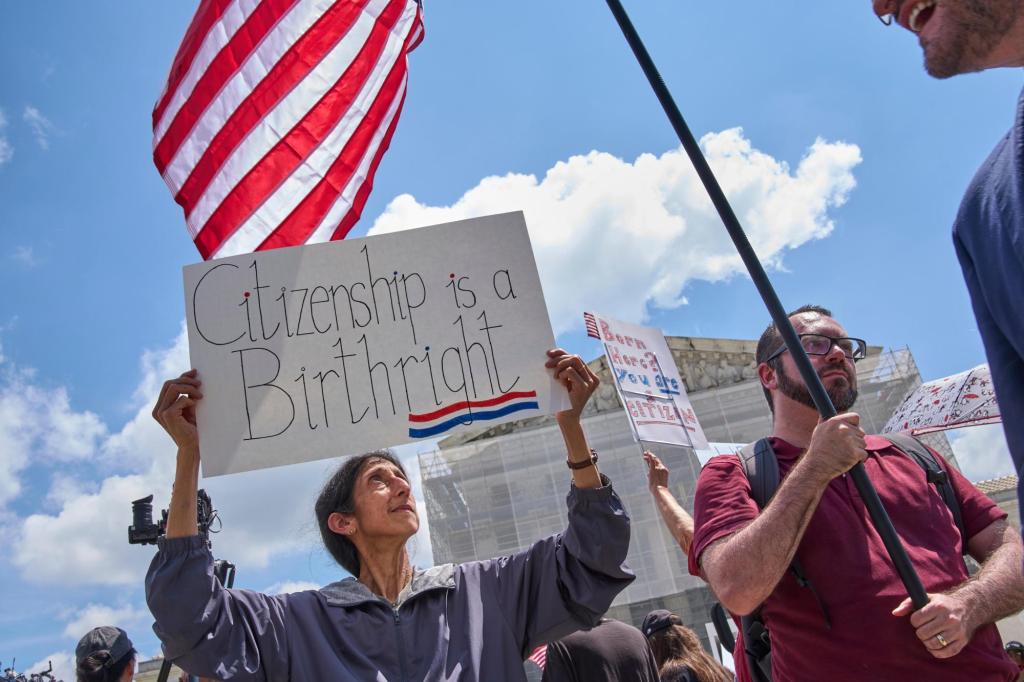
By MARK SHERMAN, Associated Press
WASHINGTON (AP) — The sequence of events is familiar: A lower court judge blocks a part of President Donald Trump’s agenda, an appellate panel refuses to put the order on hold while the case continues, and the Justice Department turns to the Supreme Court.
Trump administration lawyers have filed emergency appeals with the nation’s highest court a little less than once a week on average since Trump began his second term.
The court is not being asked to render a final decision but rather to set the rules of the road while the case makes its way through the courts.
The justices have issued orders in 13 cases so far. The Trump administration has won more than it has lost, including in two cases Friday in which the high court blocked lower court orders involving the Department of Government Efficiency.
Among the administration’s other victories was an order allowing it to enforce the Republican president’s ban on transgender military service members. Among its losses was a prohibition on using an 18th century wartime law called the Alien Enemies Act to deport Venezuelans alleged to be gang members to a notorious prison in El Salvador.
Two arrived this week, including one on Friday.
The Education Department has laid off nearly 1,400 employees
A federal judge in Boston has ordered the employees reinstated and also blocked action on Trump’s plan to dismantle the department, one of his top campaign pledges.
In his order last month, U.S. District Judge Myong Joun wrote that the layoffs “will likely cripple the department.” The federal appeals court in Boston rejected the administration’s emergency request to put Joun’s order on hold.
On Friday, Solicitor General D. John Sauer told the Supreme Court that Joun’s overstepped his authority and was substituting his policy preferences for those of the Trump administration.
The layoffs help put in the place the “policy of streamlining the department and eliminating discretionary functions that, in the administration’s view, are better left to the states,” Sauer wrote.
The Massachusetts school districts, education groups and Democratic-led states that sued over Trump’s plan have a week to respond.
Another judge blocked plans to downsize the federal workforce
On Monday, Sauer renewed the administration’s request for the high court to the way for downsizing plans, while a lawsuit filed by labor unions and cities proceeds.
The high court filing came after an appeals court refused to freeze a California-based judge’s order halting the cuts, which have been led by the Department of Government Efficiency. The appeals court found that the downsizing could have broader effects, including on the nation’s food-safety system and health care for veterans.
In her ruling last month, U.S. District Judge Susan Illston found that Trump’s administration needs congressional approval to make sizable reductions to the federal workforce.
The administration initially asked the justices to step in last month, but withdrew its appeal for technical, legal reasons.
The plaintiffs have a Monday deadline to respond.
A judge rebuked the administration over deportations to South Sudan
The Trump administration’s latest appeal asks the high court to halt an order by U.S. District Judge Brian Murphy in Boston. The White House violated his earlier order, Murphy found, with a deportation flight bound for the African nation carrying people from other countries who had been convicted of crimes in the U.S.
Those immigrants must get a real chance to raise any fears that being sent there could put them in danger, Murphy wrote.
Trump’s top Supreme Court lawyer, Solicitor General D. John Sauer, asked for an immediate high court order that would allow the third-country deportations to resume.
Murphy has stalled efforts to carry out deportations of migrants who can’t be returned to their home countries, Sauer wrote. Finding countries willing to take them is “a delicate diplomatic endeavor” and the court requirements are a major setback, he said.
The court could act at any time.
Trump wants to change citizenship rules in place for more than 125 years
Several judges quickly blocked an executive order Trump signed on his first day in office that would deny citizenship to children who are born to people who are in the country illegally or temporarily.
The administration appealed three court orders that prohibit the changes from taking effect anywhere in the country.
Earlier in May, the justices took the rare step of hearing arguments in an emergency appeal. It’s unclear how the case will come out, but the court seemed intent on keeping the changes on hold while looking for a way to scale back nationwide court orders.
One possibility advanced by some justices was to find a different legal mechanism, perhaps a class action, to accomplish essentially the same thing as the nationwide injunctions blocking Trump’s citizenship order.
Nationwide injunctions have emerged as an important check on Trump’s efforts to remake the government and a source of mounting frustration to the Republican president and his allies.
Judges have issued 40 nationwide injunctions since Trump began his second term in January, Sauer told the court during the arguments.
The court could act anytime, but almost certainly no later than early summer.
Originally Published:



